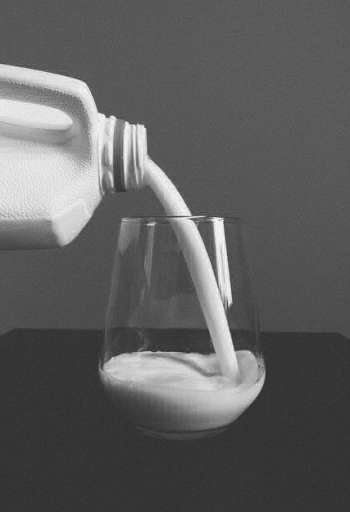Buttermilk Health Benefits, Properties, and Uses

Properties: Antibacterial, Anti-cancer, Antioxidant, Anti-viral, Astringent
What is Buttermilk?
Buttermilk traditionally refers to the liquid that remains after butter has been churned from milk or cream. Buttermilk today can be purchased in stores. Store-bought buttermilk is a thick, tart-tasting liquid that’s often added to different recipes, although it can be drank on its own as well.1 Buttermilk is often a pale yellow color. Many people prefer the taste of buttermilk to regular milk. The USDA recommends consuming low or nonfat buttermilk instead of full fat buttermilk to reduce your caloric and fat intake.2 Many people add spices like cinnamon and cumin or herbs like rosemary, cilantro and mint to buttermilk before they drink it cold.3
Buttermilk Health Uses and Health Benefits
Buttermilk health benefits are well known as it’s full of essential nutrients. One of the primary buttermilk health benefits is its high level of calcium. Calcium is responsible for building and strengthening bones and muscles and preventing degenerative bone diseases. One serving of buttermilk can provide almost 30% of your daily calcium requirement.2
Buttermilk is also rich in riboflavin (Vitamin B2) and protein. It also contains healthy bacteria, which help to keep the digestive system healthy.2 3 Here are some of the important buttermilk uses for preventing and treating conditions:- Heat Stroke - Buttermilk is a traditional remedy for treating heat stroke because it can restore hydration and give you essential nutrients lost due to excessive sweating.
- Melena (Black Stool) - Buttermilk contains important bacterial cultures for improving digestive health. It can help to treat digestive conditions such as melena.
- Dehydration - Buttermilk can help treat dehydration because it contains mainly water as well as essential nutrients.
- Vaginosis - Buttermilk contains probiotics, which help to restore healthy bacteria and prevent and treat bacterial vaginosis.
- Diarrhea - Buttermilk improves digestive function, including stopping and preventing diarrhea. Buttermilk can also help to restore hydration as being dehydrated is another cause of diarrhea.
Buttermilk Side Effects and Precautions
There are no serious buttermilk side effects. However, it’s important to be cautious of consuming too much buttermilk. Buttermilk contains both fat and sodium, which can damage your cardiovascular system when consumed in high quantities. The fat content in buttermilk is primarily saturated fat, which raises cholesterol. Opt for nonfat or low-fat buttermilk and only consume the recommended daily serving.2